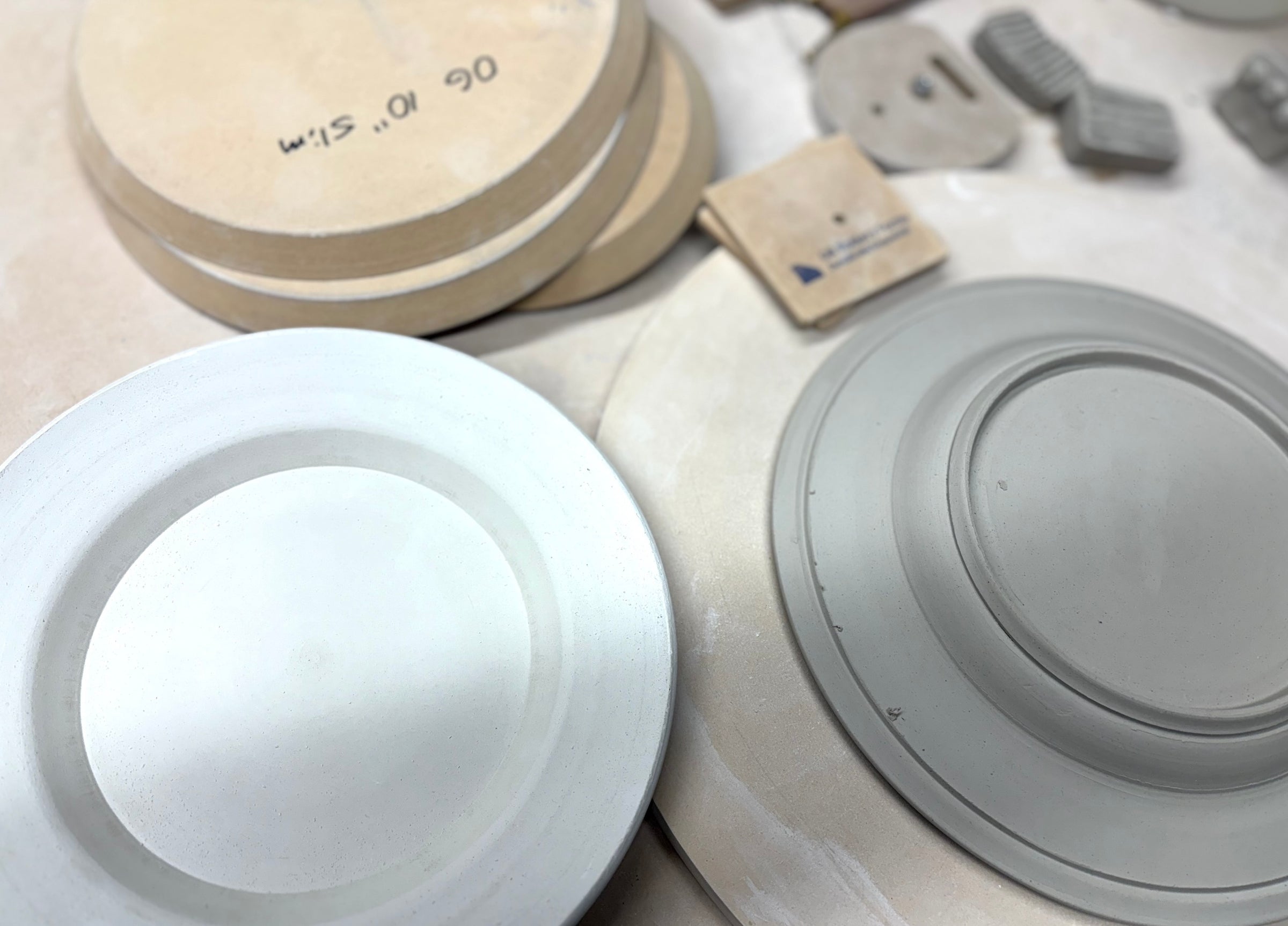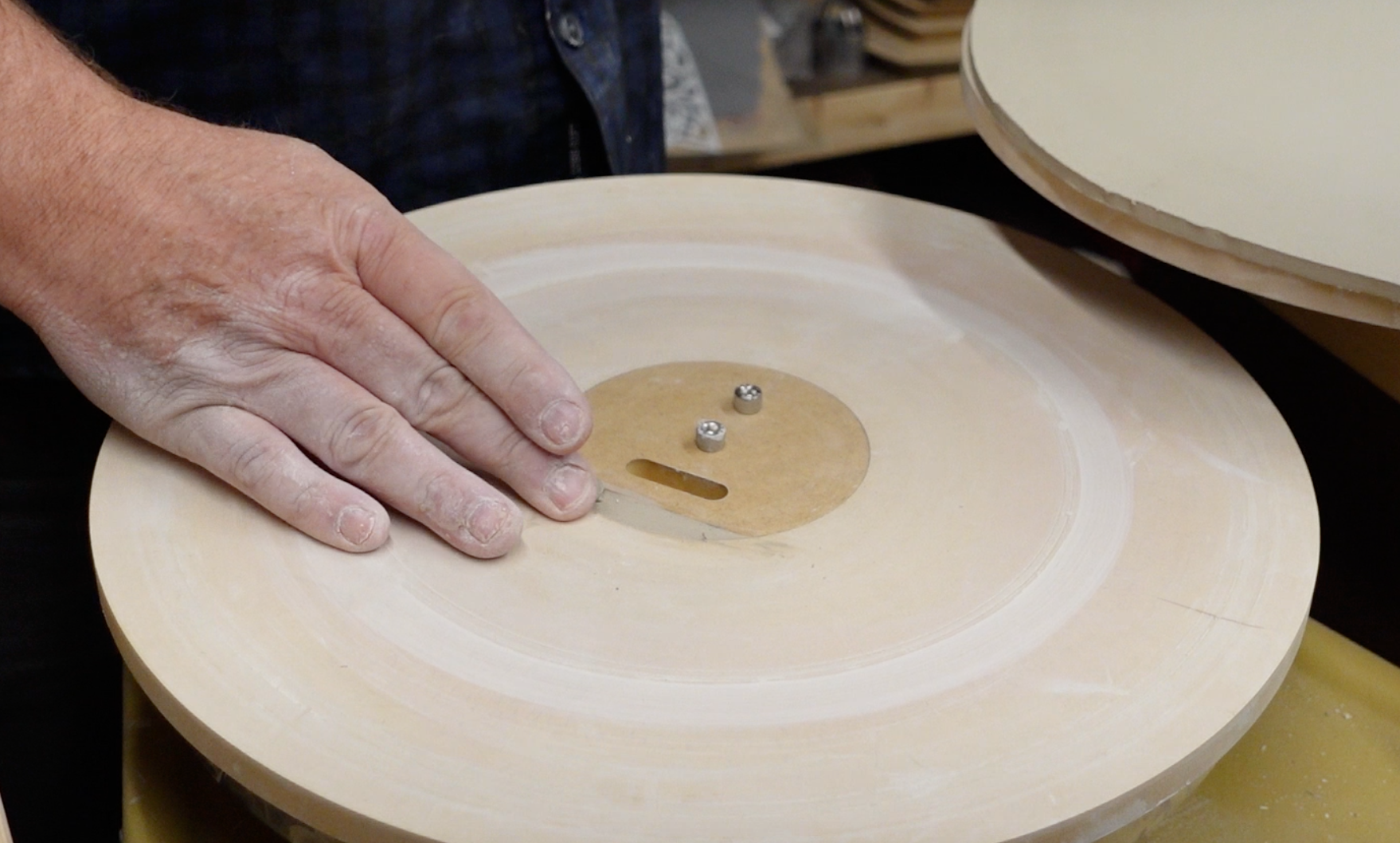FAQ
What are the Forms Made of?
expand_more
The Forms are made from fiberboard.
The cut and beveled fiberboard makes them durable and economical. Easy to use over and over again, giving you a tool to create your personalized, shallow objects. The Forms are designed to be shallow so they are more versatile.
How do I care for the Forms?
expand_more
The Forms are wood, so to make them last for thousands of uses make sure you let them dry in between each use.
The timing of making them and removing the Form from the slab is very similar to plaster. If left on too long your clay will crack and the wood will mold or start to get soft. Mold can easily be washed off with dish soap, and if edges get too rough you can use sandpaper to smooth them.
Do you partner with non-profit organizations and/or accept donation requests?
expand_more
We focus our direct donations to our local community here in Grand Rapids, Michigan.
We encourage anyone seeking donations or partnerships to reach out to one of our distributors in your area: https://grpotteryforms.com/pages/distributor-map OR encourage any donors to purchase Forms for your organization, as donors often like to be able to purchase tangible items.
While we can't always commit to a partnership, please know that we value the work you're doing in the arts community immensely!
What determines the size of the Forms?
expand_more
Form sizes are measured from the back side of the Form which is also the largest part of the Form. Measurements are approximate.
If you are trying to determine what size to make, there are many factors involved. Factors would include: The size of your lip, shrinkage of clay and firing temperature.
The Depth of Standard Forms are 3/4 inch. If you want to determine the center/inside measurement, it would be 1.5 inches smaller than the Form measurements.
Our Slim Forms are 1/2 inch in depth.
Deeper Options:
If you are looking for a deeper option you can use the general rule that if a shape is 1.5 inches different in measurement it will stack with the size above or below it. We offer "Stacks" to make this available to you.
Due to the depth limitations of the wood we feel it is not practical to glue wood together to make deeper shapes. If you need this depth then it becomes more cost effective to use plaster molds.
Learn MoreHow do I avoid warping?
expand_more
The first step to avoid warping is properly compressing one side of the slab completely. We then drape the slab over the Form, and compress the other side while it’s on the Form.
After compression and completing any foot or lip prep (adding spacer), we don’t touch the object until it is quite a stiff leather hard (the Form pops off on its own). You should be able to press a finger nail into the clay and leave a mark, but you should not be able to form an impression with the soft part of your finger.
If you are making objects with a lip you must use a spacer.
Once the clay is a stiff leather hard, we lift it off the Form. If it bends or moves in any way after lifting it off, you’ve taken it off too soon. We’ve found that removing the slab too soon is the single most significant factor towards warping the piece.
Also, trying to flip it over before it dries enough may result in the ends to start curling upward. We understand it can be difficult to “be there at the right time,” but the importance of removing the piece at the right time cannot be understated.
The second most common way the slabs will warp is that there is a draft in your room caused by a fan, heater, breeze or room air flow. Make sure to let the object dry evenly in a still area. Speed is not a factor. Plastic or the use of weighted sacks can also cause uneven drying.
Steps to Avoid Warping when Creating a Plate:
- Use a Slab Roller to roll-out the clay
- Use a Rib to compress the clay two different directions on one side
- Add texture if necessary
- Drape, the smooth/textured side down, of moist clay onto form and press gently and evenly to sides to push out any air trapped underneath.
- Use Rib again to compress clay to the Form - firmly and evenly
- Cut strips of clay using Foot Maker
- Let piece and foot strips rest for about 20-30 minutes to stiffen clay slightly
- Score area and add water to score marks to then attach the feet
- Attach foot strips to create border around piece. No more than 1/2 an inch from edge and 8 inches from widest point
- Use Modeling Tool to clean the places where foot meets the body on all sides
- If the piece has a rim, lift off work surface and place a Spacer underneath
- Press the edge of the rim down to work surface to create a slight pitch
- Let piece set for 4-8 hours uncovered in non draft area until edges start to curl up
- Key is even drying - not length of drying. Sometimes putting plastic on top creates uneven drying
- Now flip piece over without flexing or stretching the clay. Then press on inside center downward to level out any curling that might have happened
- Use Surform Rasp to clean edges and carve smooth any uneven areas
- Use Notched Rib to burnish the edges even smoother. With non grog clay you can use a Sponge to smooth edges but do not get clay too wet
- Now is a great time to add your favorite underglaze or carve into piece
- Let dry and bisque fire. Stacking should not affect warping
How do I avoid "seams" when using the Stack Packs?
expand_more
Unfortunately, one of the disadvantages of stacking the Forms is that it is difficult to avoid creating small "seams" between them, as there will remain a small gap unless the Forms themselves were glued together. When we use Stacked Forms to create bowls or plates with greater depth, we have found it is most effective to use a rib or ribbon tool to smooth out the seam lines when the piece is a very stiff leather hard.
Do I need to use a release agent?
expand_more
No release agent, cleaning or sealing necessary. In fact we would recommend avoiding doing this.
How do I avoid the foot popping off in the bisque fire?
expand_more
We’ve noticed that two things seem to cause the foot “popping off” in the bisque.
The first is when the body of the clay is still a little wet and is “rushed” into the bisque. Make sure that your piece is completely bone dry before bisqueing.
The second is when the foot is applied but is slightly wetter or drier than the body of the piece. This may cause the foot to separate from the body, especially at the ends. It is very important to make sure that the foot and body of the piece contain the same moisture level to increase adhesion. Additionally, make sure that when you apply the foot, you are thoroughly scoring and wetting both the bottom of the piece and the part of the foot that attaches to the piece.
All of our Round Forms are now pre-drilled for use with the WA (Wheel Attachment) System.
Do you ship to Alaska/Hawaii/Internationally?
expand_more
Yes we can! Use the shipping calculator in the checkout process to see your shipping rates. Please advise, when choosing the USPS option for shipping, the package will be tracked within the United States only.
How do I avoid distinct marks on my Forms?
expand_more
You can sand down the form edges before use to eliminate the appearance of distinct marks. Sanding or altering the wood will not affect its use.


